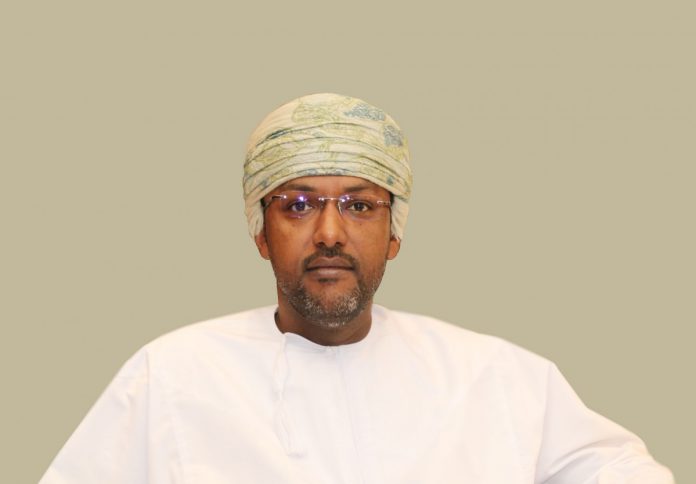The Central Bank of Oman is working towards liberalising the approval process for new banking products and services and reducing regulatory barriers to foster innovation. Excerpts from the inaugural address by H.E. Tahir Salim Al Amri, Executive President, CBO at the New Age Banking Summit 2023
For achieving the goal of a sustainable and green financial system in the Sultanate, the Central Bank of Oman (CBO) has taken various steps, which include, among others sensitising banks and FLCs to Basel Committee’s guidance on this subject in December 2021, an MoU with Be’ah Authority on several capacity building and energy saving initiatives in the financial sector as well as various steps to reduce environmental impact within the CBO.
I am delighted to share with you our upcoming endeavours in the realm of green financing and transitioning to a lower carbon economy. We have recently finalised the Roadmap to Foster a Sustainable and Green Financial System, aligning ourselves with the practices of leading central banks worldwide.
As a first step, we are in the process of preparing detailed guidance for banks and financial institutions, which will include climate-related metrics and transition frameworks. Moreover, we are dedicated to facilitating the launch of green fintech initiatives and encouraging the issuance of green bonds and Sukuk by licensed institutions. In the quest to incorporate climate risk into our macroprudential policy and supervision frameworks, the CBO will establish clear supervisory expectations. These expectations will address the governance, processes, and controls of financial institutions concerning climate-related data reporting and risk management. We will also strengthen climate-related financial disclosures and reporting requirements for our banks and FLCs, mandating them to incorporate climate-related scenarios in their stress testing exercises. Drawing from global and regional best practices, with the support of other stakeholders, we plan to develop a principle-based taxonomy to guide licensed institutions in assessing and categorising their funded activities, promoting the transition towards a low-carbon economy.
Additionally, the CBO recognises the significance of environmental, social, and governance (ESG) criteria in its own investments and portfolio management. We aim to integrate these criteria into our decision-making processes and generate research that further explores this vital subject. Furthermore, we will expand our outreach, awareness, and capacity-building initiatives to foster sustainable and green financing.
To ensure we have a comprehensive understanding of the current landscape, we recently conducted a survey on green and sustainable financing practices among our banks and FLCs. The valuable insights gathered from this survey will serve as the foundation for mapping out and defining a baseline of existing positions and market practices. Additionally, these findings will guide our regulatory and supervisory approach as we continue to promote sustainable and green financing. Tracking improvements in financing practices will allow us to measure the impact of the initiatives we implement in the next stage. Together, we can shape a sustainable and resilient financial landscape that not only addresses the challenges of climate change but also embraces the opportunities presented by a transition to a lower carbon economy.
Payment System
The payment sector is constantly evolving in Oman and globally. New technologies are emerging all the time, which are changing the way we make payments, do transfers and make saving and investment decisions. In Oman’s case, we can also observe a clear and rapid trend of banking sector consumers and businesses preferring electronic means of transfer over the traditional means of using cash and cheques. Let me highlight you some major trends in the Sultanate in the past few years.
Looking at the Automated Clearing House (ACH) transactions, both volume and value have experienced consistent growth. Just in five years, the volume has grown over 2.5 times from 7.2 million transactions in 2018 to 18.5 million transactions in 2022. A similar trend of 2.5 times growth can be seen in terms of value of ACH transactions, which have increased from RO4.7bn in 2018 to RO11.5bn during 2022. Oman is also experiencing exponential growth in the use of Oman Net during the last five years, which includes transactions made through ATM, POS and e-commerce. Between 2018 and 2022, Oman Net volume has increased over three times (300 per cent) from 82.4 million transactions to 252.9 million transactions. This tremendous expansion has been mainly achieved in POS and e-commence transactions, showing a trend, which got a further boost during the Covid-19 pandemic.
In e-commerce transactions, there is over thirteen-fold (i.e. 1300 per cent) increase during the last five years i.e. from about 3.1 million transactions in 2018 to about 43 million transactions in 2022. In POS transactions, there is over four times (i.e. 400 per cent) increase during the last five years i.e. from about 42.6 million transactions in 2018 to over 172.6 million transactions in 2022.
On the other hand, the volume of cheques in Oman decreased by 20 per cent from 2018 to 2022. I expect that the overall trend of tremendous growth in retail payments in Oman through the use of electronic payment systems is likely to continue in the future, as electronic payment systems become more widely available and accepted. I would like to thank the banking and financial sector for their continued support of the retail payments sector. I look forward to working with you to ensure that the retail payments sector in Oman remains safe, efficient, and convenient.
Accelerating digital transformation
I would also like to share with you some important initiatives that the Central Bank of Oman has undertaken to pave the way for the digital transformation of its banking sector. CBO recognises the tremendous potential of technology in shaping the future of finance, and it is committed to fostering an environment that embraces innovation while safeguarding the interests of its citizens.
One such initiative is the introduction of the PSP licensing framework, which establishes clear guidelines and standards for payment service providers. This framework promotes transparency and accountability, creating a competitive marketplace that benefits both businesses and consumers.
Another significant initiative is the e-KYC framework, which revolutionises customer verification and onboarding processes. Through digital technology, individuals will be able to open bank accounts and access financial services remotely, securely, and efficiently. CBO’s commitment to financial inclusion is further exemplified by the development of a National Digital Onboarding Registry, which will centralise customer data and facilitates seamless information sharing between financial institutions. Oman is also prioritising the development of a comprehensive digital banking framework. This framework will introduce licensing and regulatory frameworks for digital banks, empowering individuals with greater control over their finances through user-friendly interfaces, innovative products, and efficient banking processes. Additionally, we are preparing a framework for Buy Now Pay Later services, ensuring responsible implementation and promoting financial inclusion.
Furthermore, CBO is working towards liberalising the approval process for new banking products and services, reducing regulatory barriers to foster innovation. We understand the critical importance of cybersecurity in the digital age and have implemented a robust cybersecurity framework. This framework addresses cyber risks, promotes collaboration, and protects the integrity of the banking sector.
In conclusion, CBO’s initiatives for digital transformation in the banking sector exemplify its commitment to leveraging technology for financial inclusion, enhancing customer experience, and ensuring the sector’s security.
These initiatives not only position Oman as a leader in digital banking but also set the stage for a future where technology and finance converge to create a more prosperous and connected society. The Central Bank of Oman has shown its commitment to serving all segments of society, including individuals with disabilities, through several circulars and instructions issued to banks and other licensed entities.
In our MOU with the Ministry of Social Development, CBO has committed to increasing employment opportunities of persons with disabilities in the banking and financial system, after training them in a qualitative manner in line with the requirements of job requirements.
The purpose is to integrate them into society as active contributors to Oman’s promising vision, as part of the “Be with us for them” initiative launched by the Ministry. CBO’s role in all these developments is that of an enabler and facilitator. It is the market players, who have to come forward and utilise and benefit from all these initiatives being taken by CBO in various areas. I am sure a bright future lies ahead for our banking and financial system, and the economy.






